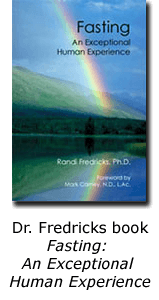Attachment Styles in Relationships
 The subject of attachment styles is a common subject in relationship counseling because many people have difficulty navigating the attachment phase of an intimate relationship.
The subject of attachment styles is a common subject in relationship counseling because many people have difficulty navigating the attachment phase of an intimate relationship.
Attachment is a part of everyone’s life. This affects the way in which individuals bond and create relationships with one another.
A person’s childhood attachment styles establish the basis of our bonding behaviors and approach to relationships in adulthood. These childhood attachment are associated with the way that we interact in romantic relationships in adulthood.
Research on attachment, separation, and loss shows a strong connection between the first years of life and the development of attachment styles.
The three basic attachment styles are secure, avoidant, or anxious-ambivalent. Fortunately, relationship counseling can help with the issues that arise from poor attachment styles.
Attachment Styles and Childhood Development
According to the current research provided by the pioneers on attachment, separation, and loss which includes both Bowlby and Ainsworth, there is a significant association between the experience of early childhood and a person’s attachment styles. Consider the following elements to help you to address behaviors related to this topic.
In relationship counseling, people explore how to restructure and establish healthy adult relationships which are founded on secure romantic and passionate love that is based on intense positive emotions.
A primary is goal is learning to create an attachment style that includes reciprocity and mutual respect. Counseling helps to raise your awareness of the value that attachments hold in providing a strong foundation for the health of your relationships.
The Different Styles of Attachment
 Researchers have suggested that there are four basic styles of attachment. The first is a secure attachment, which is when it is relatively easy for someone to become emotionally close to others. He or she is comfortable depending on others and having others depend on him or her. A securely attached person doesn’t worry about being alone or abandoned – or having others not accept who they are.
Researchers have suggested that there are four basic styles of attachment. The first is a secure attachment, which is when it is relatively easy for someone to become emotionally close to others. He or she is comfortable depending on others and having others depend on him or her. A securely attached person doesn’t worry about being alone or abandoned – or having others not accept who they are.
With an avoidant or dismissive style of attachment, an individual is comfortable without any close emotional relationships. It is very important for this person to feel independent and self-sufficient, preferring not to depend on others or have others depend on them. Additionally, a person with an avoidant or dismissive style of attachment can find it difficult to trust others completely and to become intimate with others.
An anxious or fearful style of attachment is found in someone who is only partially uncomfortable getting close to others. This person wants emotionally close relationships, but finds it difficult to trust others completely or to depend on them. Often, this person worries abut being hurt by others. An individual with this style of attachment tends to become enmeshed with others which can scare people away.
The last type of attachment style is ambivalence, which is found in people who want to be completely emotionally intimate with others, but often find that others are reluctant to get close. This person can be uncomfortable being without close relationships, but they also worry that others don’t value them.
Attachment Styles in Relationship Counseling
In relationship counseling, you can examine which attachment style describes you in your relationship. If you are in a relationship, you might look at which style describes your spouse or partner and whether their attachment style matches yours. Relationship issues can often be better understood in light of these attachment styles.
When you establish a relationship with someone, your attachment style can impact the success of the union. For example, if you are in a relationship with someone whose attachment style is not compatible with yours, you might run into problems, but don’t be upset. With counseling, these issues can be worked out and the relationship may be deeper than it ever was before.

San Jose Relationship Counseling in the Silicon Valley including San Jose, Los Gatos, Saratoga, Sunnyvale, Campbell, Cupertino, Los Altos, Mountain View, and Santa Clara.



